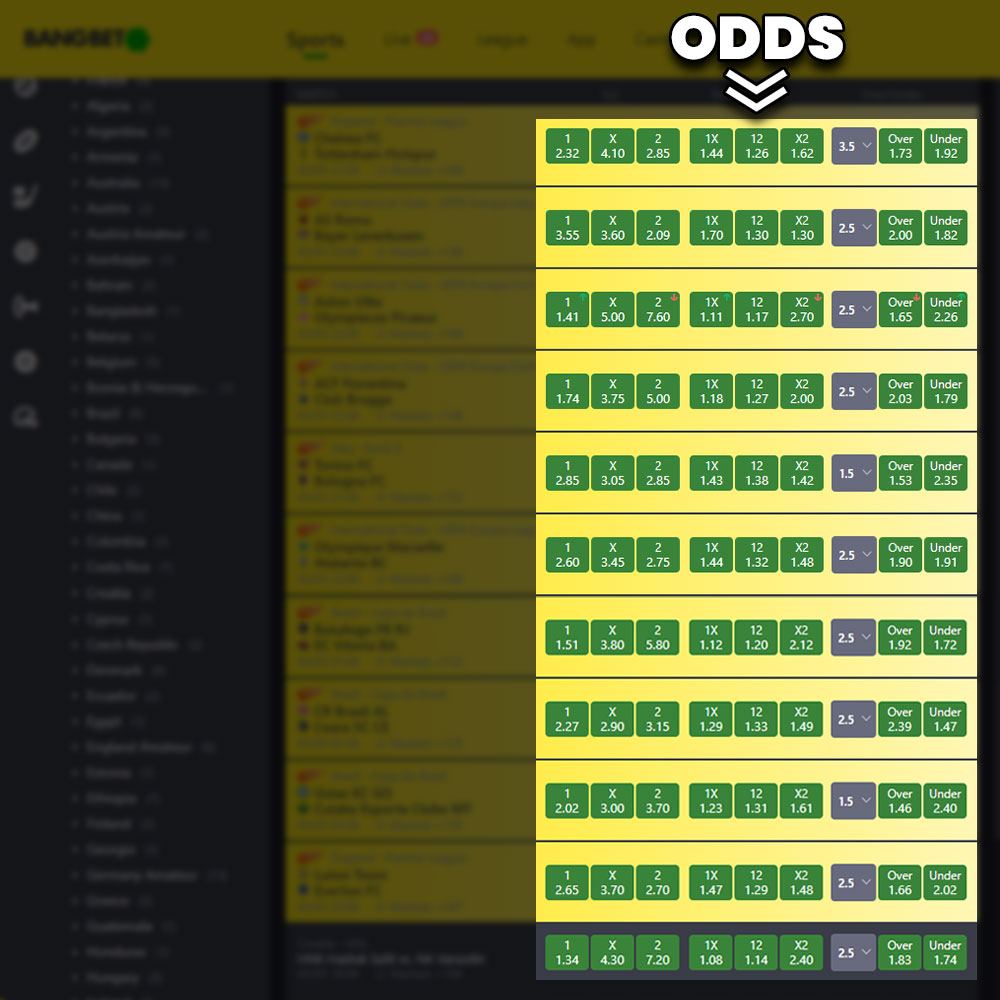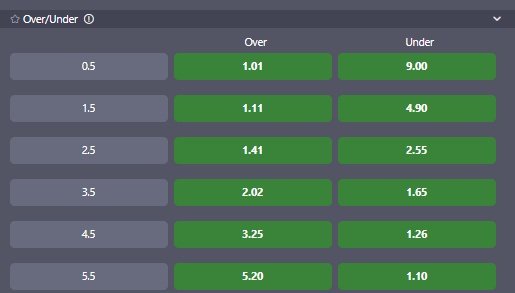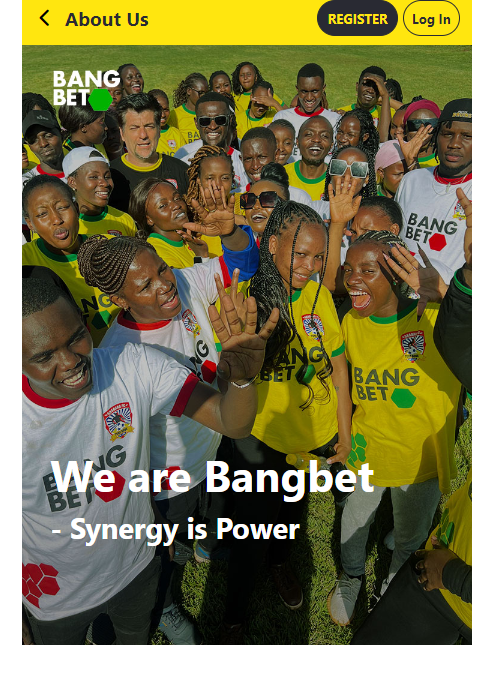Betting lines are a fundamental part of sports betting and gambling in general. Understanding how betting lines work and how to leverage them effectively is crucial to becoming a successful bettor and managing risk.
At their core, betting lines represent the implied probability set by the betting company for the likelihood of an outcome occurring in a sporting event. The lines are expressed as odds, which determine the payout for a winning wager. Odds can be expressed as fractions (e.g. 3/1), decimals (e.g. 2.00), or using the American moneyline system (e.g. -150). On Bangsports, we express odds in decimals.
The ability to interpret betting lines and odds correctly is vital. It allows bettors to identify betting value, compare prices across sportsbooks, and make informed wagering decisions. Mastering odds and lines is akin to learning a new language – it takes time and effort, but unlocks a deeper understanding of the betting market.
Welcome to the exciting world of sports betting at Bangsports, where you can learn the tricks to make smarter bets and possibly win big!
Ever looked at betting lines and felt confused? You’re not alone.
In this guide, we’ll explain everything you need to know about betting lines in a simple way. We’ll show you how to understand the odds, make smart choices, and maybe even get an edge over the house. Get ready to turn your curiosity into knowledge and start betting with confidence!

How Betting Lines Work
Betting companies are responsible for setting the betting lines and odds for each game or event. Their goal is to set lines that attract equal betting action on both sides in order to mitigate risk and guarantee profit through the vigorish or juice charged on each bet.
Several factors go into setting the opening lines:
- Team strengths and weaknesses
- Player injuries or suspensions
- Home field advantage
- Recent performance and trends
- Public perception and betting tendencies
Lines will then shift in response to the market as money pours in on one side or the other. Betting companies aim to have the same amount of money bet on both sides of a line so that they can earn the commission without any risk. If more money is bet on one side, they’ll adjust the line to try to entice more wagers on the other side to balance the action.
The final closing line represents the consensus betting line after accounting for the influence of sharp bettors and the betting public. This line shift from the opening to closing line allows bettors to find value by wagering early on lines that move favorably. Understanding line movements and factors that influence the odds is crucial for gaining an edge.
How to Read Common Bet Types
Sports betting offers a variety of wager types to meet different betting styles and preferences. Here are the most common bet types;
Moneyline Bets
A moneyline bet is a type of wager in sports betting where you simply pick which team or player you think will win a match or event.
Unlike point spread betting, which involves a handicap, moneyline bets focus purely on the outcome of the game, without any adjustments to the final score.
How Moneyline Bets Work with Decimal Odds
In countries where decimal odds are used like in Kenya, the potential payout for a moneyline bet is easy to calculate.
The odds will be presented as a decimal number, which represents the total amount of money you would receive back for each unit of currency wagered, including your original stake, if your bet is successful.
For example, let’s say you’re placing a moneyline bet and the odds for Team A to win are set at 2.10, and you decide to bet KES 1,000.
Here’s how you’d calculate your potential total return:
- Odds for Team A: 2.10
- Your Bet: KES 1,000
If Team A wins, your total payout would be:
{Total Payout} = {Bet Amount}*{Odds}
{Total Payout} = KES 1,000*2.10 = KES 2,100
This total includes your original stake of KES 1,000 plus KES 1,100 in winnings.
Understanding Decimal Odds
The decimal odds number represents the full payout rather than just the profit. This makes it straightforward:
- If the decimal odds are less than 2.0, the team or player is considered a favorite (more likely to win).
- If the decimal odds are more than 2.0, they are considered an underdog (less likely to win).
Thus, decimal odds not only inform you about the potential return on investment but also give a quick insight into the perceived likelihood of an outcome.

Spread Lines
A spread bet, also called a line bet, involves betting on a margin of victory. It is also referred to as handicap betting. The spread is set by oddsmakers and represents the expected margin between the two teams.
The favorite has to win by more than the spread for a spread bet on them to be successful The underdog can loThe favorite will have points subtracted from its final score, while the underdog will have points added.
For example, if Team A is the favorite, they might be listed as -1.5 against Team B. For a bet on Team A to win, they need to win the game by more than 1.5 points.
Spread bets allow you to bet on teams expected to win handily but offer more favorable odds than a moneyline bet.
Props
Proposition bets, or prop bets, wager on outcomes other than the final score, such as player performance.
Example player props include yellow or red cards issues- referred as bookings, the goal scorers, or the number of corners
Props allow you to bet on individual player performance regardless of game outcome. They add variety and increase ways to win.
Totals
Also called over/unders, a totals bet is a wager on the total combined points scored in a game by both teams.
Betting companies set a line, such as 10 points for a football total. You bet whether the final score will go over or under 10.
Totals provide an opportunity to bet on high- or low-scoring games without needing to pick a winner. They add excitement throughout as you root for points.

Understanding Implied Probability
The odds offered on a betting line imply a certain probability that each outcome will occur. This is known as implied probability.
How to Calculate Implied Probability
- Start with the Decimal Odds: Let’s say a betting company gives odds of 2.50 for a team to win.
- Convert the Odds to Implied Probability: Use this simple formula:
- Implied Probability=(1/Decimal Odds)×100
For odds of 2.50, it would be:
- Implied Probability=(1/2.50)×100=40%
This means the betting company thinks there’s a 40% chance that the team will win.
What Does Implied Probability Mean?
- Bookmaker’s Margin: Remember, the probability also includes the bookmaker’s profit margin. That’s why the total probability of all possible results is more than 100%.
- Finding Good Bets: You want to find bets where you think the real chance of winning is higher than what the bookmaker’s odds say. If you think the team has a 50% chance to win, but the bookmaker’s odds say 40%, that’s a good bet for you.
- Shop Around: Look at different bookmakers to find the best odds. Better odds mean a better deal for you.
Using Implied Probability
Knowing implied probability helps you:
- Understand Risk: It shows how risky a bet is.
- Compare Odds: You can find the best deal by comparing odds from different bookmakers.
- Make Smarter Bets: Betting becomes less about guessing and more about making smart choices.
By understanding and using implied probability, you can make better decisions in sports betting and increase your chances of winning.
Tips for Using Betting Lines
Mastering betting lines takes time and practice, but these final tips can give you an edge:
- Specialize in one sport. The more familiar you are with teams, players, and trends, the better you’ll spot value. Stick to what you know best rather than betting randomly.
- Shop for the best lines. Opening lines and public betting can create line value. Check multiple books and pounce when you spot discrepancies.
- Bet underdogs. The sportsbook builds in a house edge on favorites. Underdogs win outright more than their odds suggest.
- Avoid parlays. While alluring, parlays are sucker bets with huge bookmaker advantage. Win more by betting singles.
- Use proper bankroll management. Have a dedicated sports betting bankroll and bet 1-5% per wager. Don’t chase losses.
- Think long-term. One losing bet or day doesn’t define success. Make smart bets consistently to profit over time.
- Know when to stop. Walk away temporarily after a bad run rather than trying to recoup losses quickly.
- Stay disciplined. Have a gameplan and stick to it. Don’t bet drunk or impulsively. Make informed, calculated bets.
Applying these tips along with understanding implied probability, line value, and proper bet sizing can lead to long-term betting success and consistent profits.

And there you have it! Now that you know how to read and use betting lines, you’re ready to take your betting game to the next level at Bangsports.
Remember, the key to success in betting is not just knowing the odds but using them wisely. Keep practicing what you’ve learned today, stay patient, and bet responsibly. Every bet is an opportunity to improve and win.
So go ahead, apply these tips, and enjoy your betting journey. May the odds be ever in your favor!

 Beatrice Chebet Makes History – First Woman Under 14 Minutes in 5,000 m
Beatrice Chebet Makes History – First Woman Under 14 Minutes in 5,000 m

